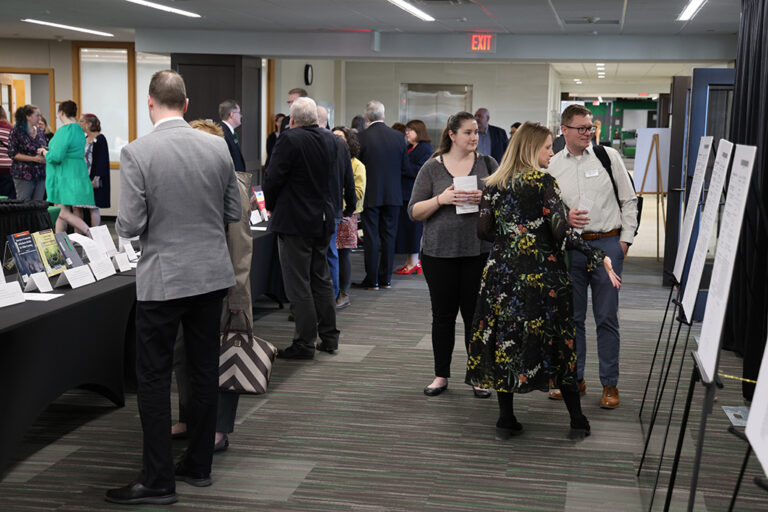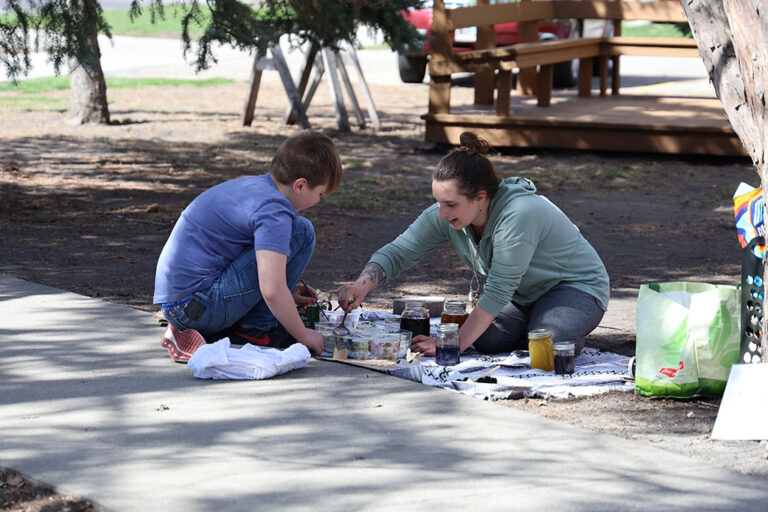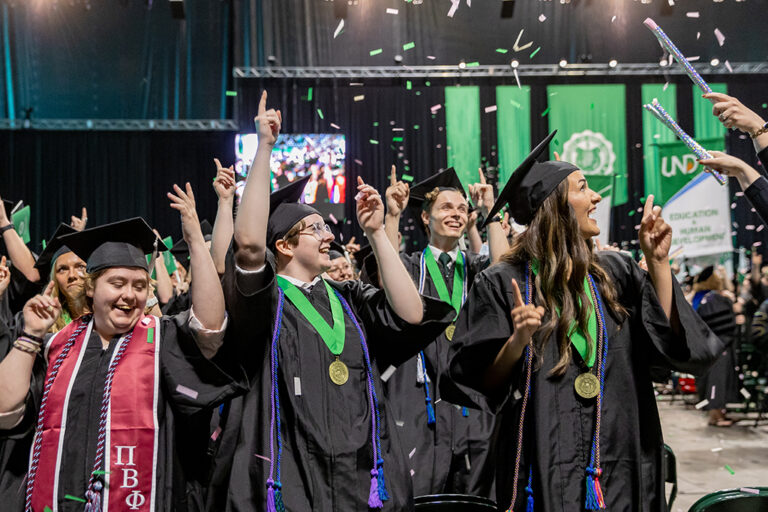Jeremy Holloway’s recipe for ‘Crock Pot’ leadership
In his 18:83 Speaker Series talk, Jeremy Holloway speaks of MLK, slow cookers and being an authentic leader

Editor’s note: A video of Jeremy Holloway’s speech is available at the bottom of this story.
****
Throw equal parts wisdom, community and communication into a slow cooker, set on low and simmer. That’s Jeremy Holloway’s recipe for effective leadership.
Holloway, assistant professor and director of geriatrics education at the UND School of Medicine and Health Sciences, gave his 18:83 Speaker Series talk on Feb. 7 at the bottom of the Memorial Union’s Social Stair. In his talk, Holloway discussed Martin Luther King Jr., authentic leadership and the abovementioned “Crock Pot” approach to leading.
The 18:83 Speaker Series presents lessons in leadership from campus and community leaders in a “TED Talk” format. Speakers time their talks to last 18 minutes and 83 seconds, a number –1883 – that coincides with UND’s founding year.
For Holloway, authentic leadership means leading with “sincerity, honesty, and integrity,” achieving a balance between oneself and the community.
These are qualities that Holloway says Martin Luther King Jr. exhibited in his famous “I Have a Dream” speech at the Lincoln Memorial in 1963.
King’s speech contextualized the past, present and future of society. By evoking the agreed-upon concepts of “inalienable rights” that the Founding Fathers had laid out, King appealed to his audience’s desire for a unified country.
“He said that he could see black boys and black girls, white boys and white girls playing together in harmony,” Holloway said. “He focused on society as a whole and what society really needed at that time.”
Holloway said that King took a “Crock Pot” approach to building community by not drawing distinctions between his community and those outside of the Civil Rights Movement. Instead, he appealed to shared ideals and a promise of a better future.
Holloway calls this a contextualization of community and said it let King communicate effectively and build bridges despite the friction in the nation.
“That’s why I think this authentic leadership is what we need, especially in issues of social justice,” he said. “It takes maturity, it takes a type of stance that says, ‘Okay, people have their differences, but we really have to sit down and talk together because we have to work together on this.’”
One of Holloway’s primary research specialties is the effect of social isolation and loneliness. He sees the approaches of modern social media movements as further dividing and isolating people, making communication difficult, he said.
“It has been announced by the U.S. Surgeon General as an epidemic in the United States. When you put social media into the mix, it can really grow into a sense of narcissism,” he said. “That causes polarization of societies.”
Contrary to slow cooker methods that let ingredients intermingle harmoniously, social media movements are the equivalent of “microwave” meals – ones in which specific ingredients become elevated at the expense of others Holloway said. He believes this alienates communities and makes the leaders’ messages less effective.
This could be attributed to what Holloway called “woke-isms,” expressions that are common in online and media spaces and encourage people to view themselves as “victims.” Holloway cautioned against this approach.
“No matter how much you’ve gone through, you still have amazing value. That’s what Dr. King thought,” he said. “Even though he’d gone through everything, he still stood up there with poise and with honor because he knew he still had value.”

Later, Holloway reflected on his experience – unsuccessful at first – of applying for a Martin Luther King Jr. scholarship.
“I wrote what I thought I was supposed to write about. I wrote about myself,” he said. “I wrote about my own problems, my own struggles, the things that I went through, how difficult that was and how I can relate to Dr. Martin Luther King because I’ve been through some really hard things.”
After a visit to the spot where King was assassinated in Memphis, Tenn., Holloway said he experienced a shift in perspective. It moved him so much that he began reflecting on King’s legacy and how it affected his life.
From this new vantage point, Holloway saw that King had paved the way for him, just as leaders such as Bayard Rustin had paved the way for King. He realized that disregarding the past would be an “injustice in itself,” and he wrote about that instead.
His second attempt won him the scholarship.
“I got that scholarship because I remembered community in context, I used some wisdom, and I also communicated in a way that I hoped my audience would understand.”
Wrapping up his speech, Holloway left the audience with a final reminder that authentic leadership stems from personal growth and recognizing one’s role in history and the community.
“We have to build together, it’s not just going to take a particular group. A revolution never happens outside; it has to come from within.”
****



